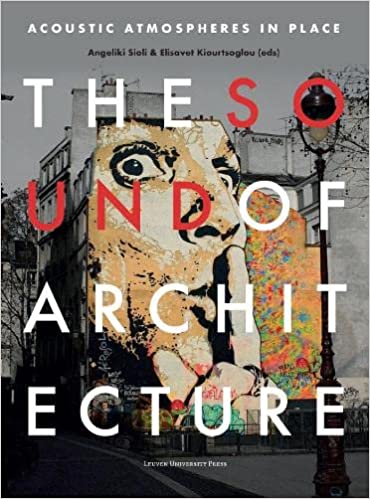
English | 2022 | ISBN: 9462703213, 978-9462703216 | 305 pages | True PDF | 31.11 MB
How sound and its atmospheres transform architecture
Acoustic atmospheres can be fleeting, elusive, or short-lived. Sometimes they are constant, but more often they change from one moment to the next, forming distinct impressions each time we visit certain places. Stable or dynamic, acoustic atmospheres have a powerful effect on our spatial experience, sometimes even more so than architecture itself. This book explores the acoustic atmospheres of diverse architectural environments, in terms of scale, function, location, or historic period―providing an overview of how acoustic atmospheres are created, perceived, experienced, and visualized. Contributors explore how sound and its atmospheres transform architecture and space. Their essays demonstrate that sound is a tangible element in the design and staging of atmospheres and that it should become a central part of the spatial explorations of architects, designers, and urban planners.
The Sound of Architecture will be of interest to architectural historians, theorists, students, and practicing architects, who will discover how acoustic atmospheres can be created without complex and specialized engineering. It will also be of value to scholars working in the field of history of emotions, as it offers evocative descriptions of acoustic atmospheres from diverse cultures and time periods.
Contributors: Anna Ulrikke Andersen (University of Oxford), Timothy Carey (Independent Scholar), Ricardo L. Castro (McGill University), Joseph L. Clarke (University of Toronto), Carlotta Darò (ENSA Paris-Malaquais), Michael de Beer (Independent Scholar), James Deaville (Carleton University), Ross K. Elfline (Carleton College), Clemens Finkelstein (Princeton University), Federica Goffi (Carleton University), Klaske Havik (TU Delft), Paul Holmquist (Louisiana State University), Pamela Jordan (University of Amsterdam), Elisavet Kiourtsoglou (University of Thessaly), Alberto Pérez-Gómez (McGill University), Cécile Regnault (Lyon School of Architecture), Angeliki Sioli (TU Delft), Karen Van Lengen (University of Virginia), Michael Windover (Carleton University).
Links are Interchangeable - No Password - Single Extraction



